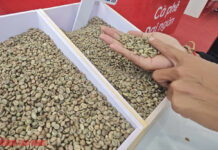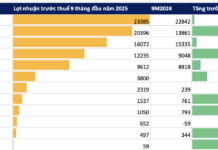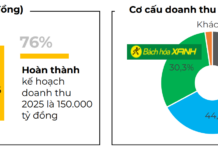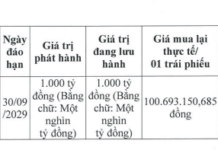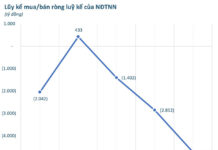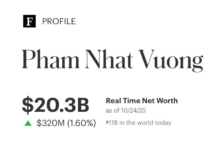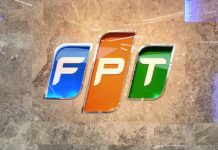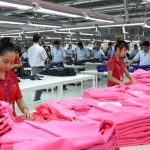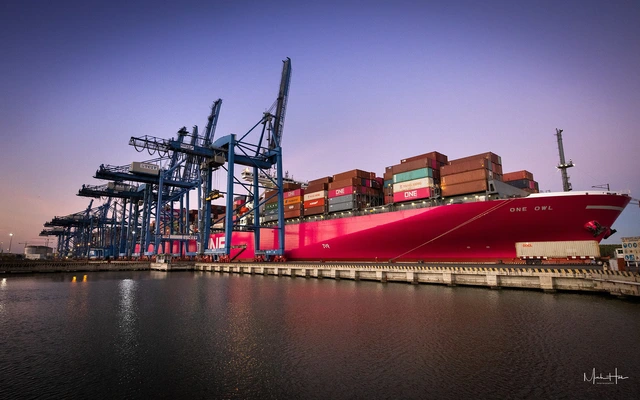Ensuring Compliance in the EU Market: A Must for Vietnamese Businesses
On October 21, the Vietnam Chamber of Commerce and Industry (VCCI), in collaboration with the Friedrich Naumann Foundation for Freedom (FNF) from Germany, hosted a seminar titled “Vietnamese Exports in the Face of EU Supply Chain Due Diligence Requirements – What Businesses Need to Know.” The event drew a large attendance from exporting enterprises, industry associations, and policy experts.
Speaking at the seminar, Mr. Dau Anh Tuan, Deputy Secretary-General and Head of the Legal Department at VCCI, emphasized that in the context of deep globalization, global supply chains have become the backbone of international trade. Alongside opportunities, businesses face new challenges related to social responsibility, environmental sustainability, and data transparency.
According to Mr. Tuan, the European Union (EU), including countries like Germany, France, and the Netherlands, has implemented numerous regulations on supply chain due diligence to ensure that production and business activities do not violate human rights or harm the environment. Two key legal documents are Germany’s Supply Chain Due Diligence Act (SCDDA) and the EU’s Corporate Sustainability Due Diligence Directive (CSDDD), which are considered the most comprehensive legal frameworks to date.
While these regulations do not directly apply to Vietnamese businesses, they encompass the entire supply chain, including foreign suppliers. Therefore, any Vietnamese enterprise involved in production for the European market must comply with environmental, labor, and data transparency standards to avoid being excluded from this “playing field.”
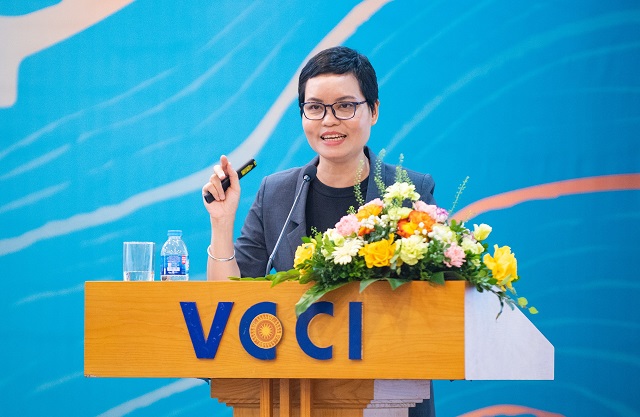 Ms. Nguyen Thi Thu Trang, Head of Research Group at VCCI – Photo: VGP
|
Challenges as Opportunities to Elevate Production Standards
According to VCCI, Vietnam is a critical link in the global supply chain for sectors such as textiles, footwear, electronics, agriculture, and seafood. The EU remains Vietnam’s largest and most stable export market, especially amid the volatility of the U.S. market.
Mr. Dau Anh Tuan warned that the new EU regulations pose significant challenges. If Vietnamese businesses fail to meet these requirements, they risk losing orders, being excluded from supply chains, or missing opportunities to expand market share.
Mr. Tuan stressed that early awareness and preparation are crucial to maintaining competitiveness once the regulations take effect.
A quick survey conducted by VCCI in July-August 2025 revealed that 59.3% of businesses exporting to the EU had never heard of these regulations, while 36.6% had only heard of them superficially without understanding their content. This awareness gap highlights the risk of Vietnamese businesses lagging in compliance efforts.
Ms. Nguyen Thi Thu Trang, Head of Research Group at VCCI, noted that the EU currently accounts for 15.3% of Vietnam’s total export turnover from 2015 to 2024, equivalent to $51.7 billion in 2024. As trade tensions with the U.S. escalate, the EU market becomes increasingly vital. Therefore, the new supply chain due diligence regulations should be viewed as a critical component of long-term export strategies.
“Textiles and footwear are the most closely monitored sectors due to their labor-intensive nature and significant environmental impact. Businesses in these sectors must prioritize compliance, as even a minor violation at any stage can affect the entire supply chain,” said Ms. Nguyen Thi Thu Trang.
Shifting Business Mindsets from Passive to Proactive
From a business perspective, Ms. Phan Thi Thanh Xuan, Vice Chairwoman and Secretary-General of the Vietnam Leather, Footwear, and Handbag Association (LEFASO), noted that the EU is a traditional market and a major export destination for the leather and footwear industry. “Every European brand has specific requirements, not only for quality but also for production processes, labor, and environmental standards. Non-compliance means certain failure,” she stated.
According to Ms. Xuan, in recent years, domestic businesses have become more proactive in self-assessment, certification, and independent audits. However, the proportion remains low, particularly among small and medium-sized enterprises, where resource constraints hinder compliance with international standards.
LEFASO suggests that to adapt, businesses should invest in dedicated teams for international standards, enhance workforce training, and collaborate with independent auditing organizations. Proactive measures not only help retain orders but also lay the foundation for Vietnamese businesses to ascend the global supply chain.
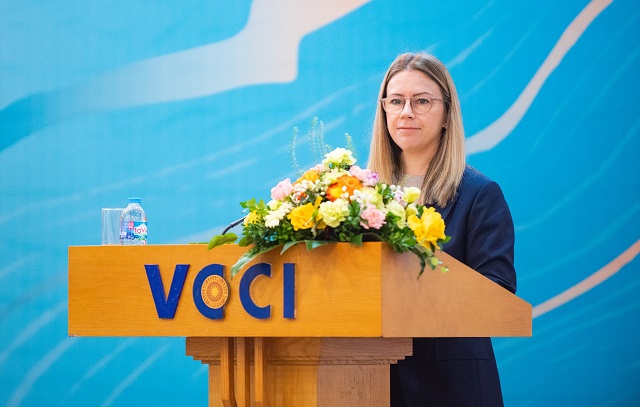 Ms. Vanessa Steinmetz, Director of FNF Vietnam – Photo: VGP
|
From an international perspective, Ms. Vanessa Steinmetz, Director of FNF Vietnam, observed: “The European market is a crucial export destination for Vietnam, but the approach is rapidly changing. Helping businesses stay abreast of new regulations will shape export strategies in the coming period.”
“Supply chain due diligence is not just a challenge but also an opportunity for businesses to demonstrate transparency, responsibility, and good governance – qualities increasingly valued by European consumers. Businesses that adapt quickly will gain a competitive edge and establish a sustainable position in the international market,” said Ms. Vanessa Steinmetz.
– 09:05 22/10/2025
Export Goods at Risk of Trade Investigations
The Vietnamese Ministry of Industry and Trade has announced that domestic steel companies are under investigation by the European Commission (EC) for alleged dumping of cold-rolled steel coils. This development comes amidst growing concerns over a range of Vietnamese products potentially facing trade defense measures and anti-dumping probes.


